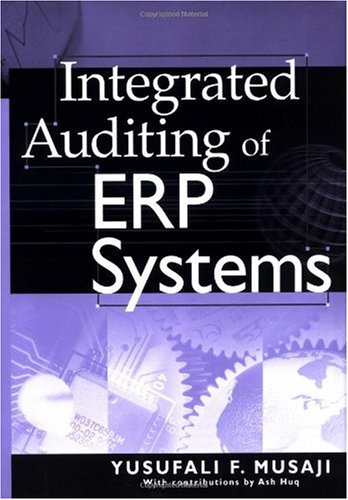

Most ebook files are in PDF format, so you can easily read them using various software such as Foxit Reader or directly on the Google Chrome browser.
Some ebook files are released by publishers in other formats such as .awz, .mobi, .epub, .fb2, etc. You may need to install specific software to read these formats on mobile/PC, such as Calibre.
Please read the tutorial at this link: https://ebookbell.com/faq
We offer FREE conversion to the popular formats you request; however, this may take some time. Therefore, right after payment, please email us, and we will try to provide the service as quickly as possible.
For some exceptional file formats or broken links (if any), please refrain from opening any disputes. Instead, email us first, and we will try to assist within a maximum of 6 hours.
EbookBell Team

5.0
20 reviews
ISBN 10: 0471235180
ISBN 13: 9780471235187
Author: Yusufali F Musaji
Part I: Understanding ERP Systems and the Audit Landscape
Part II: Foundational Concepts for Integrated ERP Auditing
Part III: Methodologies and Techniques for Integrated Auditing
Part IV: Advanced Topics and Future Trends
integrated auditing of erp systems
auditing erp systems
auditing erp implementation
integrated erp systems
erp audit meaning
Tags: Yusufali F Musaji, Auditing, ERP